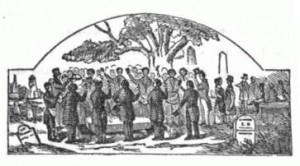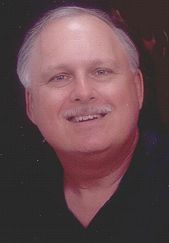Early last year I lost my father, a 57 year Mason. I had the pleasure of calling him “Brother,” as he raised me to the sublime degree of Master Mason many years ago. He was a loyal Mason and we gave him a Masonic Memorial Service that was well attended by Brothers from Florida’s Districts 20 & 21. His home lodge, Lodge of the Ancient Landmarks No. 441 F.& A.M. of Buffalo, New York was also represented. This was certainly appreciated by my family and I know my father would have liked it.
Having said this, my thoughts turn to Masonic funeral services in general. I have attended many such services over the years and I have found them to be greatly appreciated by the families of the deceased. Many are overwhelmed by the love and support the Masons express during the service. As far as I’m concerned, attending a Masonic service is the very least we can do for a Brother, regardless if he is a local member or from a distant jurisdiction. I am always amazed how some Brothers are unwilling to attend such a service. Many mistakenly believe they have to belong to an Acacia/funeral committee in order to participate. In reality, it is our duty as a Mason to attend such a service whether we know the Brother or not. I realize some services are performed during the day when many of us are working and unable to attend. But aside from this, if there is a Masonic service to be performed, and our cable-tow permits us, we should be in attendance.
Many claim they simply are unaware of the passing of Brothers. All you need to do is browse the obituaries of the local newspapers, either the printed form or on the Internet. As for me, I have bookmarked the obituary sections of the local newspapers and regularly scan them using keywords such as “Mason” and “Lodge.” When I come upon a Brother from a northern jurisdiction, I e-mail the obit to his Grand Lodge and, if I can find it, his home Lodge. As a past Secretary myself, I know this is very much appreciated.
Regardless if you scan the obits on the Internet or in the printed version, there should be at least one person in your Lodge charged with monitoring the passing of Masons. Although the Worshipful Master should be made aware of the passing of a Brother, the responsibility is typically delegated to the Secretary, the Chaplain, or the chairman of your funeral committee.
Also Brothers, please dress properly for a funeral. In Florida, for example, it is customary to wear a dark suit and tie; a tuxedo is not considered appropriate, nor are dungarees and shorts. Plain white aprons are the norm, not Lodge officer or Past Master aprons. Funeral committees usually make aprons available to Masons attending the service, but you may also want to bring your own in case they run short of aprons.
Prior to the funeral, the Brother’s Masonic background should be verified by his home jurisdiction, so that we might know more about the Brother and assure he is in good standing with his Lodge.
If you become involved with a committee charged with performing a Masonic funeral service, be sure you know your responsibilities, your lines (if any) and how to deport yourself during the service. Rehearsals are invaluable to assure the service comes off polished and dignified. Further, talk with the clergy or funeral directors involved prior to the service to assure the ceremony is well organized and runs like clockwork.
Attending or performing a Masonic service is not complicated, nor is it time consuming. And I can tell you this, a little dignity, a little polish, and a little sympathy is very much appreciated by the family of our departed Brother.
Keep the Faith.
by W:.Tim Bryce, PM, MPS
timb001@phmainstreet.com
Palm Harbor, Florida, USA
“A Foot Soldier for Freemasonry”
Originally published on FmI in 2007
NOTE: As with all of my Masonic articles herein, please feel free to reuse them in Masonic publications or re-post them on Masonic web sites (except Florida). When doing so, please add the following:
Article reprinted with permission of the author and FreemasonInformation.com



In the Grand Lodge of Massachusetts, attending a masonic funeral is one of the requirements for the Master Mason Rookie Award. This gets young masons to fulfill a duty of theirs they might not otherwise know about. Just like Marines go to the funeral of a Marine, even if they didn’t know him or her, and firemen and cops often do something similar, masons should go to the funerals of masons, even if they didn’t know the brother. The family, and especially the widow, is always sincerely touched that you cared enough to see your brother off to the Lodge Celestial.
Good article, Tim.